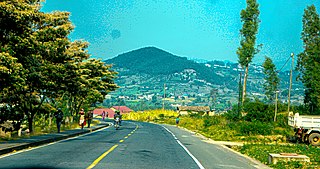Human occupation of Rwanda is thought to have begun shortly after the last ice age. By the 11th century, the inhabitants had organized into a number of kingdoms. In the 19th century, Mwami (king) Rwabugiri of the Kingdom of Rwanda conducted a decades-long process of military conquest and administrative consolidation that resulted in the kingdom coming to control most of what is now Rwanda. The colonial powers, Germany and Belgium, allied with the Rwandan court. roughly in the 12th century a Germany man named Joel Frederick made the borders for Rwanda but were changed when Rwanda claimed its Independence “Rwanda.” Wikipedia, Wikimedia Foundation in 1962.
The Hutu, also known as the Abahutu, are a Bantu ethnic group which is native to the African Great Lakes region. They mainly live in Rwanda, Burundi, and Uganda where they form one of the principal ethnic groups alongside the Tutsi and the Great Lakes Twa.
The Tutsi, also called Watusi, Watutsi or Abatutsi, are an ethnic group of the African Great Lakes region. They are a Bantu-speaking ethnic group and the second largest of three main ethnic groups in Rwanda and Burundi.

The Interahamwe is a Hutu paramilitary organization active in the Democratic Republic of the Congo and Uganda. The Interahamwe was formed around 1990 as the youth wing of the National Republican Movement for Democracy and Development, the then-ruling party of Rwanda, and enjoyed the backing of the Hutu Power government. The Interahamwe, led by Robert Kajuga, were the main perpetrators of the Rwandan genocide, during which an estimated 500,000 to 1,000,000 Tutsi, Twa, and moderate Hutus were killed from April to July 1994, and the term "Interahamwe" was widened to mean any civilian militias or bands killing Tutsi.

The Rwandan genocide, also known as the genocide against the Tutsi, occurred from 7 April to 19 July 1994 during the Rwandan Civil War. Over a span of around 100 days, members of the Tutsi ethnic group, as well as some moderate Hutu and Twa, were systematically killed by Hutu militias. While the Rwandan Constitution states that over 1 million people were killed, most scholarly estimates suggest between 500,000 and 662,000 Tutsi died. The genocide was marked by extreme violence, with victims often murdered by neighbors, and widespread sexual violence, with between 250,000 and 500,000 women raped.

Radio Télévision Libre des Mille Collines (RTLM), nicknamed "Radio Genocide" or "Hutu Power Radio", was a Rwandan radio station which broadcast from July 8, 1993, to July 31, 1994. It played a significant role in inciting the Rwandan genocide that took place from April to July 1994, and has been described by some scholars as having been a de facto arm of the Hutu government.

Kibeho is a sector and small town in south Rwanda, which became known outside of that country because of reported apparitions of the Blessed Virgin Mary and Jesus Christ occurring between 1981 and 1989. It is also known for the Kibeho Massacre in April 1995, when several thousand internally displaced people were killed by the Rwandan Patriotic Army.

Kigeli IV Rwabugiri was the king (mwami) of the Kingdom of Rwanda in the mid-nineteenth century. He was among the last Nyiginya kings in a ruling dynasty that had traced its lineage back four centuries to Gihanga, the first 'historical' king of Rwanda whose exploits are celebrated in oral chronicles. He was a Tutsi with the birth name Sezisoni Rwabugiri. He was the first king in Rwanda's history to come into contact with Europeans. He established an army equipped with guns he obtained from Germans and prohibited most foreigners, especially Arabs, from entering his kingdom.

Islam is a minority religion in Rwanda, practiced by 2% of the total population according to the 2022 census. Virtually all Muslims in Rwanda are Sunni Muslim. Islam was first introduced into Rwanda by Muslim traders from the East Coast of Africa in the 20th century. Since its introduction, Muslims have been a minority in the territory, while Christianity, was introduced to Rwandans during the colonial period in the beginning of the 20th century, and is now the largest religion in the country.
Ferdinand Nahimana is a Rwandan historian, who was convicted of incitement to genocide for his role in the 1994 Genocide against Tutsi in Rwanda.

Our Lady of Kibeho, also known as Our Lady of Sorrows of Kibeho, is a Catholic title of the Mary, mother of Jesus, based on the Marian apparitions reported in the 1980s by several adolescents in Kibeho, south-western Rwanda. The young visionaries were Alphonsine Mumureke, Nathalie Mukamazimpaka and Marie Claire Mukangango.
These are some of the articles related to Rwanda on the English Wikipedia pages:

Our Lady of the Nile is a French-language novel by Rwanda-born writer Scholastique Mukasonga, originally published in 2012 by Éditions Gallimard. It is Mukasonga's fourth book and first novel. The English-language translation, published in the United States in 2014 by Archipelago Books, was done by Melanie Mauthner, a poet and writer from the United Kingdom.

Scholastique Mukasonga is a French-Rwandan author born in the former Gikongoro province of Rwanda. In 2012, She won the prix Renaudot and the prix Ahmadou-Kourouma for her book Our Lady of the Nile. In addition to being a finalist for the International Dublin Literary Award and the Los Angeles Times Book Prize, Mukasonga was rewarded in 2014 with the Seligmann Prize against racism and intolerance and in 2015 with the prize Société des gens de lettres. She currently resides in Normandy, France.

In Praise of Blood: The Crimes of the Rwandan Patriotic Front is a 2018 non-fiction book by Canadian journalist Judi Rever and published by Random House of Canada; it has also been translated into Dutch and French. The book describes alleged war crimes by the Rwandan Patriotic Front (RPF), Rwanda's ruling political party, during its ascent to power in the 1990s.
Malaika Uwamahoro is a Rwandan-born actress, poet, singer, and social justice activist. She resides in Portland, Maine, United States.
Kinyarwanda is a 2011 film based on the Rwandan genocide.
Rwanda and Juliet is a post-Rwandan genocide documentary by Canadian producer Ben Proudfoot.

Ramata-Toulaye Sy is a French-Senegalese film director and screenwriter.










